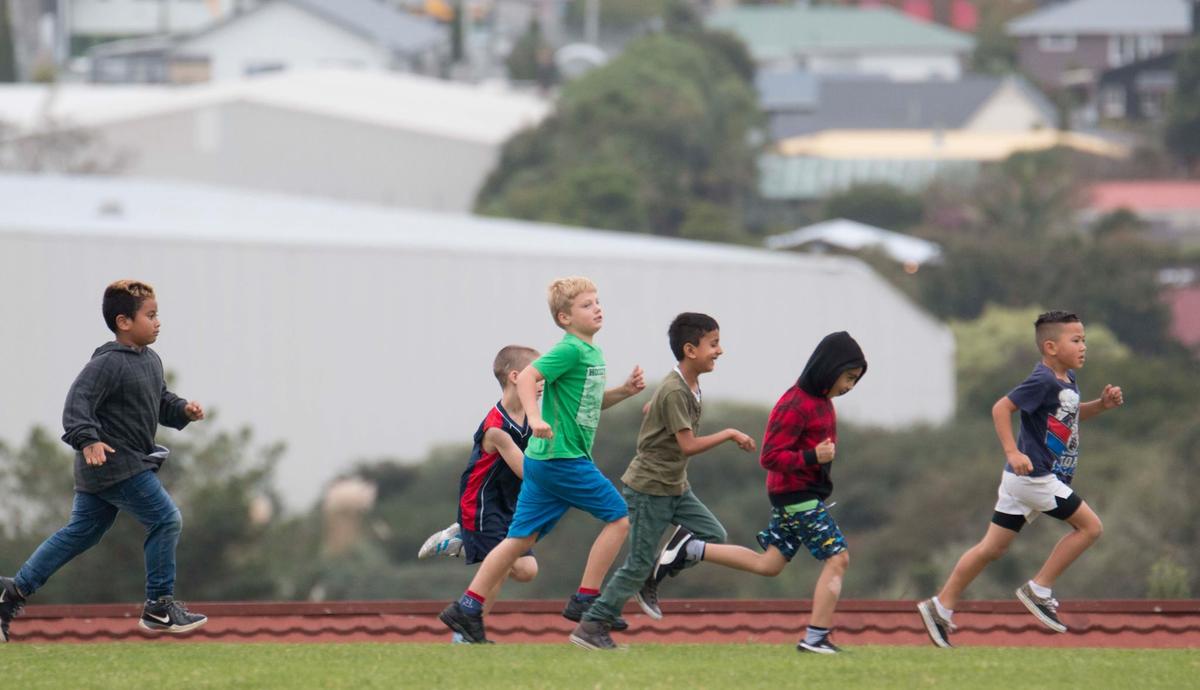Sports Supporting Learning:
sydney.edu.au/news-opinion/news/2024/02/05/sticking-with-sport-during-school-years-linked-to-academic-succe.html

Sports Supporting Learning:
sydney.edu.au/news-opinion/news/2024/02/05/sticking-with-sport-during-school-years-linked-to-academic-succe.html
As school and summer sports resume, a new study from the University of Sydney finds links between kids' long-term participation in sports and increased academic performance, including impacts on National Testing scores, absenteeism and likelihood to attend university.
In the first long-term study of its kind, published in the Journal of Physical Activity and Health, researchers followed the sports participation of over 4000 Australian children ages 4 to 13. They then matched this with academic trajectory up to 21 years of age.
They found that continued sports participation during school years was linked to lower absenteeism, better attention and memory, higher National Test and end-of-school scores, and higher odds of studying at university.
Lead author Dr Katherine Owen said many factors influence a decline in sports participation during adolescence, but this study showed the importance of finding ways to keep young people active and engaged. “We know all too well the link between educational attainment and improved health status.
This study suggests that making sport a priority in school could be one way to influence this,” said Dr Owen from the University’s Charles Perkins Centre and School of Public Health. “To achieve that, we also need to see sports adapt and become more flexible and inclusive to allow more children to play the way that they want to, whether it's just for fun or for social reasons.


Differences Between Team and Individual Sport :
The authors write that while the beneficial link between sport and academic performance is likely due to sustained physical activity, the study also highlights differences between those involved in individual sports (such as swimming or running) versus team sports.
Those in team sports performed better on attention and working memory tests, had fewer absent days without permission and were more likely to be awarded the Higher School C or equivalent.
“This is in line with other research that shows team sports develop important social and mental skills in children and teens,” Dr Owen said. “It provides opportunities to work together, often fostering a sense of belonging. Unsurprisingly, these kids show lower absenteeism, also linked to school completion.
” Compared to those who did not participate in any sport, those with ongoing participation in individual sports had higher National Testing literacy results and higher academic performance on end-of-school scores. “We suspect this may be because individual sports encourage responsibility, self-reliance, goal setting and a higher level of preparation. On a psychological level, many of these skills also carry over into preparation for school exams,” Dr Owen said.
The study also showed that continued sports participation was beneficial for academic performance for socioeconomically disadvantaged children. However, these children were less likely to continue involvement in sports.
Earlier Research, Study Method and Limitations:
The new study's results align with an earlier systematic review led by Dr Owen in 2022. The review analysed 115 international studies (predominately from the United States) totalling more than one million students and found a positive link between sports participation and academic performance.
The new study used data from the Longitudinal Study of Australian Children (LSAC) and included a nationally representative sample of children throughout Australia. Sports participation was self-reported from parent and carer surveys that identified if children regularly participated in sports every 12 months, whether it was individual or team-based sporting codes, and whether sports took place within the school or elsewhere were not accessed.
It may also be that children who continue to play sports have inherent personality characteristics and motivations that also lead to higher educational attainment.
“There is still much that we don’t know. This also includes the role of different types of sport and the influence of frequency and intensity of sport participation on academic results,” Dr Owen said.
“Ongoing studies will be important to flesh this out and to help us understand how we can tailor educational environments to foster and promote sports participation in a way that might improve young people’s physical activity levels, health and educational success.”
Declaration:
The authors have no funding or competing interests to declare.